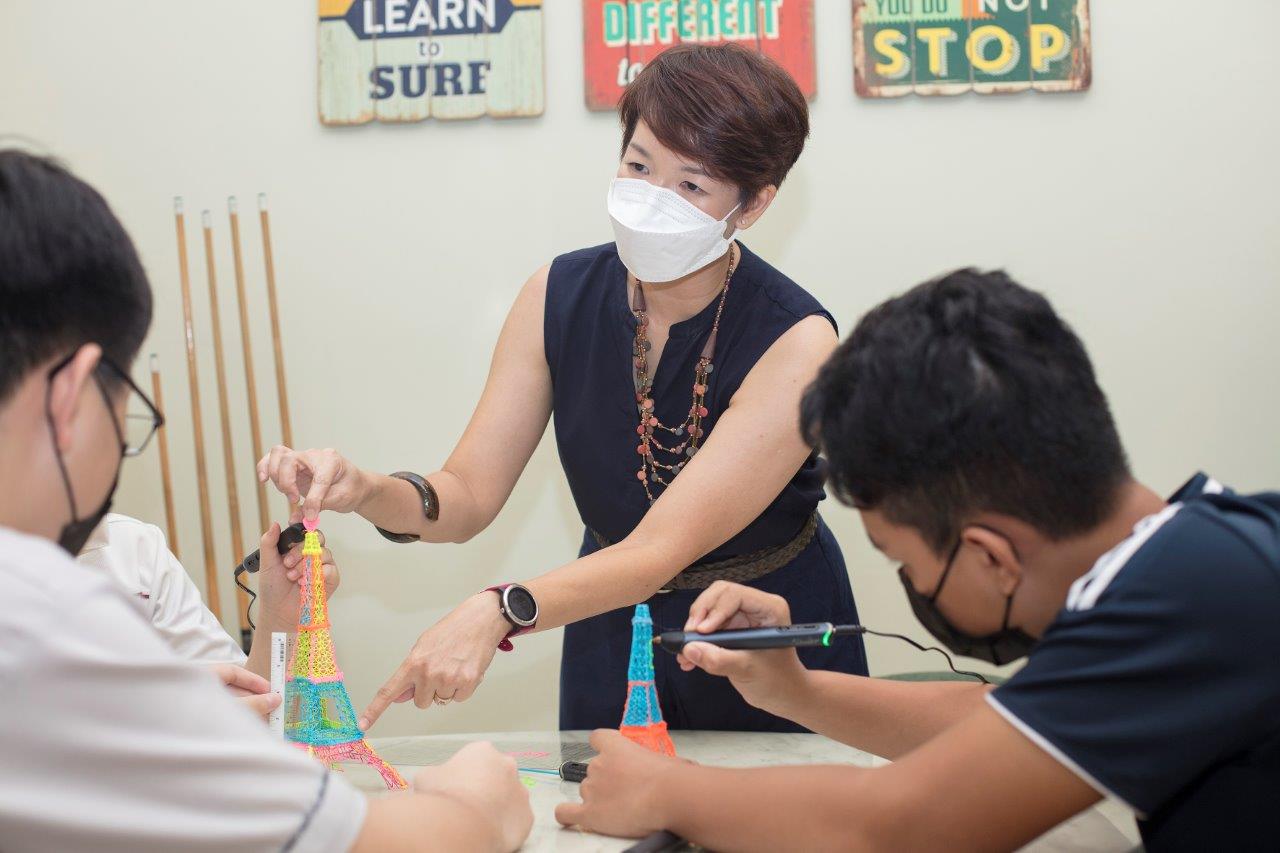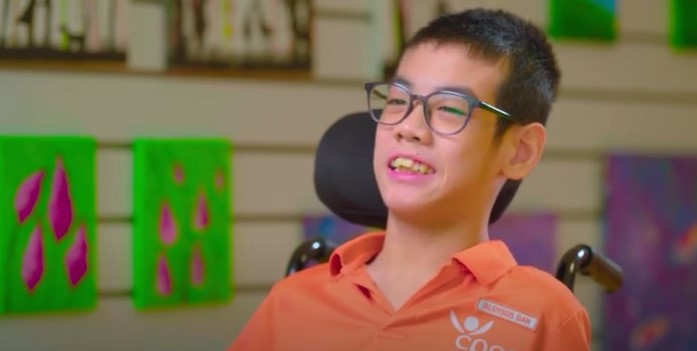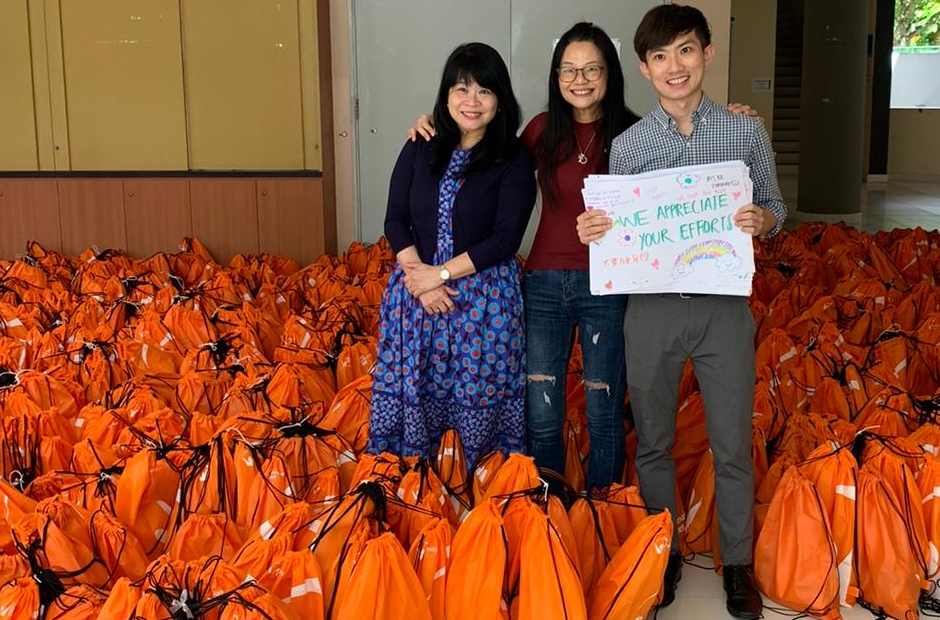Every afternoon over the last year, a group of 28 students will take turns at Naval Base Primary School to head to the school’s edible garden to tend to leafy plots of kailan, kang kong and bak choy. As the students dig up weeds and water the plants under the teachers’ guidance, they chit-chat and bond with one another.
This is just one example of after-school programmes that schools have put together to support students from disadvantaged backgrounds.
In 2018, the Ministry of Education (MOE) started UPLIFT (Uplifting Pupils in Life and Inspiring Families Taskforce), a multi-agency effort that sought to support disadvantaged students and their families.
A key part of this revolves around after-school care, especially in primary schools, to provide an alternative arrangement for students to have a structured and conducive after-school environment.
Today, all 185 primary schools have school-based Student Care Centres (SCCs). At the SCC, students have an environment to rest, complete their homework and revision, and play with friends. Schools work closely with the SCCs to strengthen after-school care and support for the vulnerable and disadvantaged students so that they have a safe and nurturing after-school environment and the support of trusted adult figures. Additional programmes are provided including for those who are not enrolled in the SCCs. The aim is to use this time and space to develop these students holistically – whether it is to provide learning and emotional support, teach life skills or enable them to give back to the community.
Here, we look at what three primary schools are offering after the regular school day ends.
Naval Base Primary School: Beacon for Life Programme
This programme is one of the school’s UPLIFT initiatives for students who are not part of the SCC but would benefit from additional support.
Every day after school, these students head to the Beacon for Life, or BfL room, to work on assignments guided by teachers or chosen Primary 6 students, who act as mentors. The room is specially set-up with foldable tables to be used for both class activities and team building.
Apart from academics, students also participate in workshops on social-emotional learning, for instance, on resilience and responsibility. They play games and do gardening to improve their mental and physical wellbeing. Last year, the school opened its own edible garden, Garden of Hope, with the help of community partners Lam Soon, a consumer goods company, and social enterprise Edible Garden City.
Mr Norzaidi Bin Ahmad, Head of Department of Educational Support, said, “If you want students to do well, they must be happy! We want to create a sense of belonging to the school and a positive learning experience.” Through these programmes, the school aimed to boost students’ self-esteem.
The school also takes this opportunity to help students know that no matter what their background, they can make a difference. After a harvest, students pack the vegetables and place them in the community fridges located at the HDB blocks opposite the school for residents to use.
Said Mr Norzaidi, “Even if you come from a disadvantaged background, that should not stop you from helping others. When students deliver the fruits of their labour to the community fridge, we want them to have that sense of gratitude and purpose. None of us are alone, we are here for each other.”
Convent of the Holy Infant Jesus (Kellock): Care & Connect Club
From learning how to prepare a sandwich to folding your uniform or sewing on a button – these are some activities that students participate in at this club that is geared to help students with learning or behaviour challenges or attendance issues. The club meets twice a week.
While students use this time to complete their homework, pick up study skills and learn time and stress management, a key aspect of the club is to equip students with socio-emotional and life skills, says Vice Principal Ms Helen Ng.
The parents of these students are very busy with work, so the school offers this support after school.
While these skills might seem trivial, they go a long way towards boosting students’ self-worth, said Ms Ng. “We do hope that they realise that they are capable of contributing at home and alleviating their parents’ workload.”
Students also participate in financial literacy workshops and play educational games that teaches self-management skills.
Ms Ng added, “It is important that this group of students discover who they are in relation to the school community. We hope every child will develop her unique giftedness to lead and make a difference. If we can build up their confidence, these students know who they can turn to if needed, and that will be a pull factor for them to come to school.”
The club is a school-wide effort with teachers stepping up as volunteers. Based on their interests, they facilitate workshops, for instance, on painting or gardening.
The club members have been enjoying the activities, and sometimes even “bugging” teachers to start more on days when the club does not meet. There has also been a marked improvement in students’ behaviour and attendance.
Ms Ng also noted how teachers have responded positively to the whole initiative. “They come up to me and tell me how the whole experience has truly resonated with them and made them feel that they are part of something bigger than themselves.”
White Sands Primary School: StarGRIT! Programme and Student Haven@WSPS
When White Sands saw that some of their students were struggling with peer pressure and personal issues, they tied up with CARE Singapore, a charity that supports at-risk youth, to offer an after-school programme to support these students.
“It is a small group of students, but we make sure that they don’t fall through the cracks. These are just some of the ‘safety nets’ we have in place so that no child will be left behind,” says Vice Principal Ms Rezina Khan.
Named StarGRIT!, students meet once a week and take part in group discussions facilitated by teachers and allied educators across a wide range of topics – from cultivating self-love to improving one’s mental wellbeing.
The small group size works in their favour, serving as an intimate space for students to share and listen without judgement.
“They learn how to apply positive self-talk, and most importantly see the good in themselves,” says Ms Khan. “Obstacles are just part of the journey, and they will grow to be resilient over time.”
White Sands also offers another programme, Student Haven@WSPS which supports students with learning needs.
To help these students develop a sense of connectedness to the school, and boost their self-confidence, the school started a Values-in-Action programme with them.
One of the things students did was to show their appreciation for the non-teaching staff’s efforts during the Covid-19 period. Students designed Thank You notes and packed goodie bags, which they presented personally to the staff.
Students saw that despite their own challenges, they, too, could make a difference to others, and teachers noted how this boosted their self-confidence.






